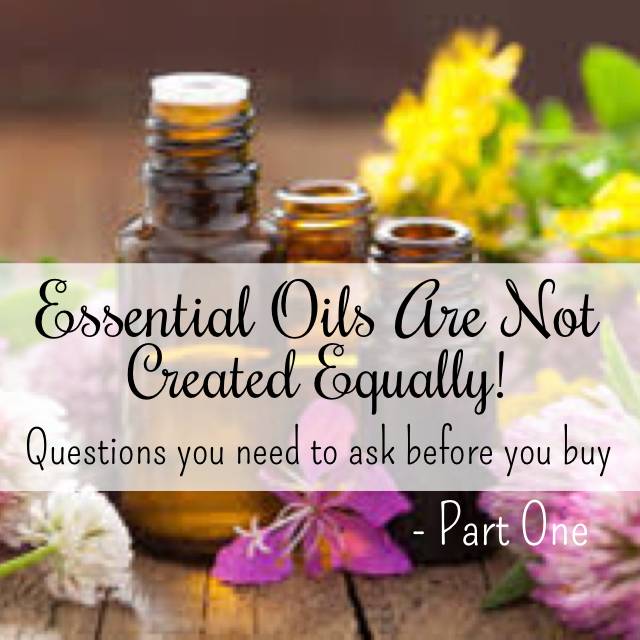
Are All Oils Created Equally?
💚Inside the plant they are! But sadly, there are companies that stoop to spraying crops with pesticides and herbicides. More crop means more 'oil'. Some use genetically modified seed. Many extract the oils with toxic chemicals. Then, they take this adulterated oil and dilute it with vegetable or petroleum based oils and label it 100% pure.
💚Sadly, this is legal if you produce a 'cosmetic ' grade oil. You will find that these products carry warning labels to avoid ingesting, some even warn against using on the skin! You have to wonder what you could do to peppermint that would make it that dangerous to use :(
💚The good news is that when you produce supplement grade oils that are safe to take internally, you have to be registered with the FDA!! But what about companies that sell real therapeutic supplement grade oils? Are they all the same?
💚Sadly, no they are not. Most 'quality' companies distill their oils at temps higher than you should so that you are only left with what 'smells good' as opposed to what has the highest health benefit. For example, one popular therapeutic grade oils company has peppermint that smells like a candy cane because all the terpines and sesquiterpines have been stripped out. This leaves only the monoterpines, or smell good molecules. But the sesquiterpines are the molecules that sink down to the cellular level for long term benefit.
💚So what questions do you need to ask before spending money on any essential oils? Let's discuss a few today.
💚1)How is the soil managed? Is the soil at least organic? (Organic means pesticide free for 7 or more years. I prefer oils from soil free of toxins for 50 or more years)
How is the soil management tracked?
When crops are removed, what is the method? If you just plow up a field of lavender, then plant peppermint, you will change the chemical make up of the peppermint. You need to pull out the lavender by the roots. These roots run up to 70 feet deep! When the roots are pulled up, they bring up all the deep trace minerals to the surface and make them more bio available.
See why soil management is so important??
💚 2) Where do the seeds come from?
If you call the main office of any oils company, they should be able to answer this question.
Where should the seeds come from?
As plants grow, you can tell which plants are stronger than others. Seeds should be harvested from the strongest plants. If this is done each year, the crops and health benefits of the plants will increase each year.
💚 3) Where are the farms and are you welcome to visit unannounced?
If a company cannot give you the address of the farms that grow plants for oils, it means they are only dealing with third party brokers. That means, no soil control, potential pesticides, toxic road run off, no distillation control, and worse yet, the farmers who work the fields don't get their fair share.
💚 4) How are the oils extract?
With the exception of pressing citrus, If it's not distilled, RUN! !!
You don't want that.
If it is distilled, ask where the oils are distilled.
Why?
Because if plant material is not harvested at the right time, with the correct harvesting process (many require hand harvesting, nearly all require hand planting), and if the plant material is not distilled at the correct time on site, it will lose most if not all of its health benefits.
A good example is Cypress. If distilled slightly too hot or slightly under the optimum temperature, there will be a higher yield of oil with 10 health benefits. But if the cypress is distilled correctly at the right temperature for the right amount of time, the yield of the oil will be lower but there will be 300 different health benefits! Which would you rather spend your money on?
Stay tuned for Part two of Questions you should ask!
Stay tuned for Part two of Questions you should ask!




0 Comments